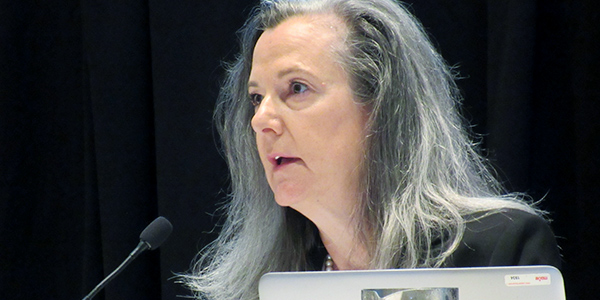By Amanda Durish Cook
TRAVERSE CITY, Mich. — The group charged with re-examining MISO’s director-selection process has issued its first recommendation: that stakeholder representation be doubled on the Nominating Committee.
Board Qualification Task Team (BQTT) Chair Mark Volpe on Wednesday said MISO sectors favor increasing stakeholder seats on the Nominating Committee from two to four to give members a greater voice in deciding who serves on the RTO’s Board of Directors. A handful of sectors first signaled support for such a move during a BQTT call last month. (See MISO Sectors OK Expanding Nominating Committee.)
The Nominating Committee is currently composed of two stakeholders and three directors.
While the BQTT says it favors stakeholders outnumbering directors on the committee, it has yet to determine how representatives would rotate to ensure all sectors get a chance to serve.
Environmental and Other Stakeholder Groups sector representative Beth Soholt said she supported some sort of sector rotation. She recalled once serving on the Nominating Committee in the “early years of MISO” but couldn’t remember an Environmental sector representative serving since.
She said she would like to “try to get away from a popularity contest and towards forced diversity.”
Municipals, Cooperatives and Transmission Dependent Utilities sector representative Megan Wisersky, who sat on the committee last year, warned that serving is time-consuming. She said sector representatives should be volunteers rather than being “frogged-marched” into the job.
Cooling-off Period Next
The task team will next tackle whether the current one-year “cooling-off” period should continue to be a prerequisite for board service, though several sectors already lean toward retaining the policy.
Volpe said his Independent Power Producers and Exempt Wholesale Generators sector “feels strongly” that the one-year moratorium for those employed in the industry should be extended to cover more candidates, including state and federal regulators and their staffs.
That issue arose last year when members installed Minnesota Public Utilities Commission Chair Nancy Lange on the board, despite concerns about the appearance of a sitting commissioner in a MISO state also sitting on the board. (See MISO Elects Lange to Board; Keeps 2 Incumbents.)
Volpe pointed to FERC Order 888, which created RTOs/ISOs with an emphasis on independence.
“Independence in appearance is very important,” Volpe said.
State Regulatory Authorities sector representative, and Wisconsin Public Service Commissioner, Mike Huebsch said he personally continues to believe the one-year moratorium is an “antiquated policy.” However, the Organization of MISO States has declined to take a stance on the matter.
Huebsch said from his experience, recusals and non-compete clauses are more common. He said MISO’s legal counsel should be astute enough to recognize when a board member might be wading into a possible conflict of interest.
“I might have a darker view of human nature,” Wisersky said. “Although it might be ‘antiquated,’ I think there’s still a need for it. Optics are very important. … I’m not so concerned with what happens publicly. I think a public shaming can occur in public media, but my concern is what occurs non-publicly.”
The BQTT will produce a list of preliminary recommendations to improve the board selection process by September. Volpe said he would likely present a package of final recommendations to the Advisory Committee in November.






